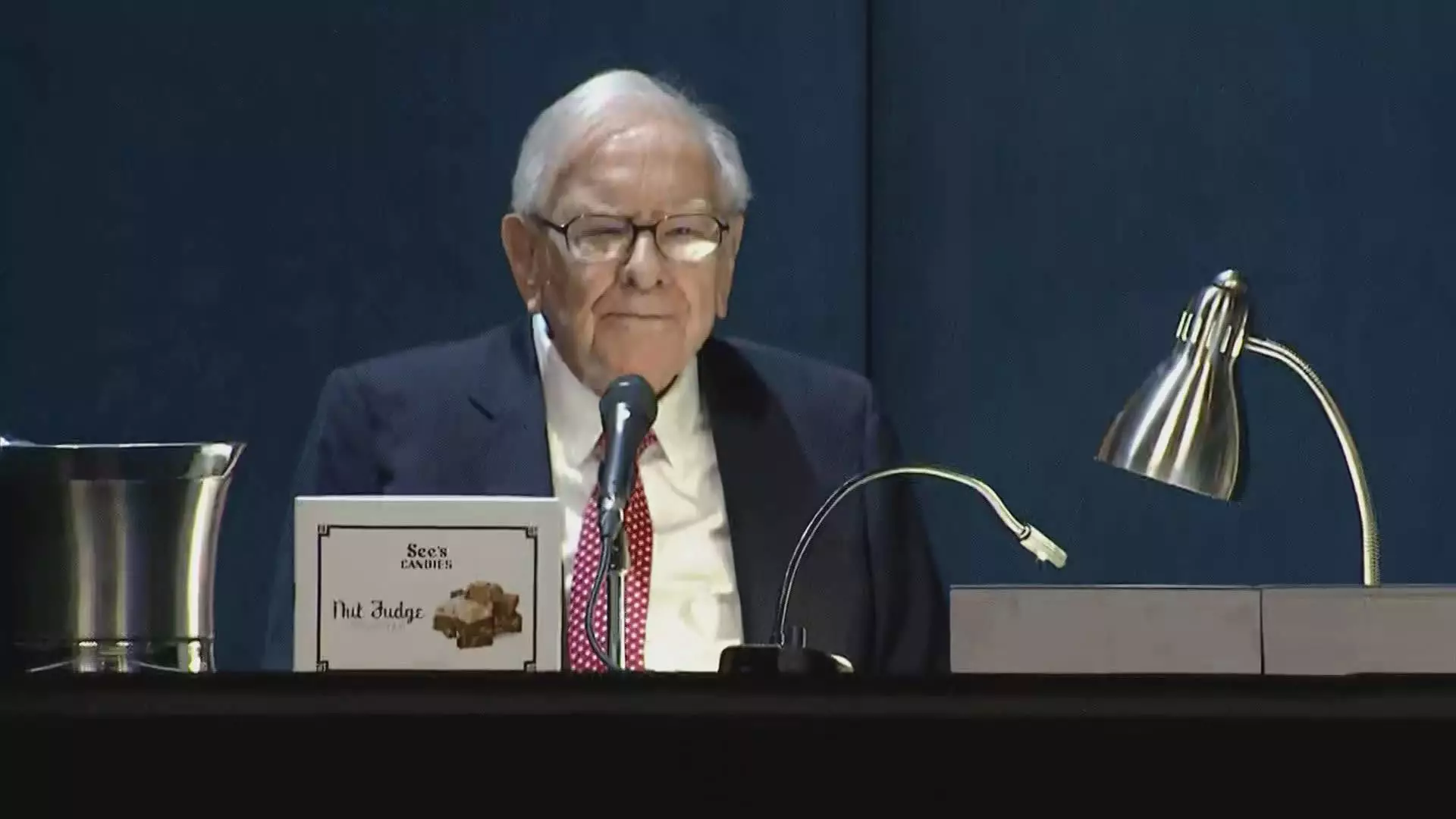Warren Buffett, the esteemed CEO of Berkshire Hathaway, has once again taken significant steps to reduce his investment in Apple, marking a consistent trend over the past four quarters. As of the end of September, Berkshire’s holdings of Apple stock are valued at approximately $69.9 billion, according to the latest third-quarter earnings report. This adjustment reflects a massive reduction of about 67.2% since the same time last year, indicating that Buffett has offloaded nearly a quarter of his overall stake, leaving him with around 300 million shares.
This ongoing divestment raises questions about Buffett’s motivations and strategic thinking. Historically, Buffett has been reluctant to invest in technology, believing them to be outside his areas of expertise. However, he took a leap into technology with Apple in 2016, initially enamored by its strong customer loyalty and innovative product offerings. For a prolonged period, Apple’s stock was Berkshire’s largest position, constituting a staggering half of the conglomerate’s equity portfolio.
Analyses of Potential Motivations
Several factors could be driving Buffett’s recent sell-offs. Analysts have speculated that his sales could be tied to high stock valuations and the need for portfolio diversification. The tech sector, particularly Apple, has experienced substantial growth over the years, and with that growth comes increased scrutiny over whether stocks are overvalued. By trimming his stake, Buffett may be seeking to mitigate risk and prevent over-concentration in a single asset.
Furthermore, Buffett hinted at tax considerations during this year’s Berkshire annual meeting. He raised concerns about potential increases in capital gains taxes emerging from government attempts to address a growing fiscal deficit. This strategic foresight could be influencing his decision to lighten his load on Apple shares. However, the extent of the reduction suggests that there might be underlying factors beyond simple tax optimization.
The Impact on Berkshire Hathaway
Berkshire Hathaway’s cash reserves have surged to a record $325.2 billion, a historic figure that highlights the conglomerate’s cautious approach amidst current market dynamics. The cash hoard indicates Berkshire’s strategic posture of being prepared for future investment opportunities while simultaneously navigating the complexities of a fluctuating market. Notably, this liquidity infusion came at a time when Buffett and his team decided to halt share buybacks entirely, indicating that they are possibly prioritizing capital preservation.
Despite the tumult in the market, Apple’s stock remains resilient, with a year-to-date increase of 16%, though it lags behind the S&P 500’s 20% growth. This divergence raises intriguing reflections on the future performance of both Apple and Berkshire’s investment strategies. As Buffett navigates this terrain of reduced holdings and high cash positions, it remains to be seen how his investment philosophy will adapt in the face of ongoing valuation challenges and economic uncertainty.
Warren Buffett’s decision to systematically reduce his Apple holdings marks a noteworthy evolution in his investment strategy. This trend indicates a new chapter for the Oracle of Omaha, suggesting he is not only embracing change but also preparing for a future where tech investments may play a different role in his philosophy. Whether this adjustment will ultimately serve to strengthen Berkshire Hathaway’s portfolio remains an open question, but it undoubtedly places Buffett’s legendary investment prowess under the microscope.

